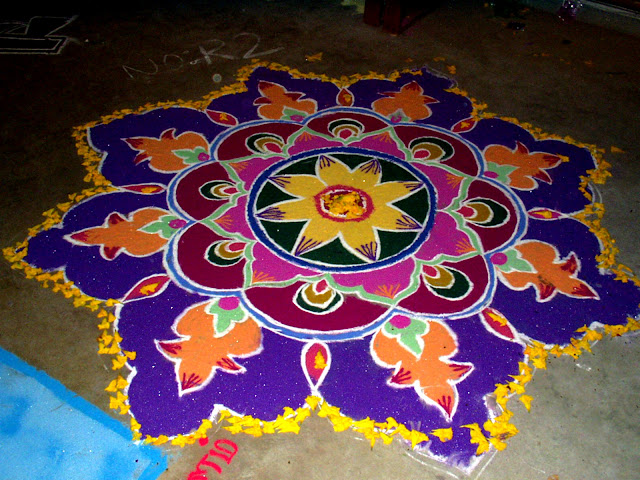Diwali - Festival of Light
Diwali, or Deepavali, is known as the Hindu New Year, and is celebrated by multiple faiths. The holiday dates back more than 2,500 years, but what exactly does this 5-day festival celebrate?
Ancient Origins of Diwali
The main theme of Diwali revolves around triumphing evil. "The ancient celebration is linked to multiple stories in religious texts, and it’s impossible to say which came first, or how long ago Diwali started." says Pankaj Jain, a professor of anthropology, philosophy, and religion at the University of North Texas. The stories differ based on the different regions of India and different religions. It seems the most popular Hindu story celebrated is that of King Rama's heroic rescue of his wife from an evil king of a neighboring kingdom. After freeing his wife, Sita, they made their way back to their kingdom, where the people lit millions of lights to guide their way and welcome the royal couple home. The Sikhs celebrate the release of guru Hargobind Singh from prison, although they celebrated the festival prior. While Diwali is a religious holiday, many people celebrate regardless; much like how non-Christians might still celebrate Christmas by decorating the tree and giving gifts.
The exact dates of Diwali change each year because it's determined by the position of the moon – but it usually falls between October and November. The Indian calendar is lunisolar, meaning it indicates both the moon phase and the time of the solar year. Diwali marks the new year in certain regions of India, but there are several New Years throughout the country. Observance is determined by which calendar that region uses. For many, Diwali is associated with Lakshmi - goddess of wealth and prosperity.
Traditions
Diwali means "row of lights" in Sanskrit. During the festival, oil lamps called diyas are used to decorate homes, welcoming Lakshmi to bring prosperity into the new year. The culture revolves around the enhancement of human beings. The lights are significant as part of the visual experience. People use light to see and plays a significant role in one's perception of the world. "The lamp is indicative of enlightenment, awareness, consciousness and ultimate liberation." explains Sadhguru.
Other traditions include wearing your finest clothes or new clothing, attending worship ceremonies, lighting fireworks, feasting, giving gifts and sweets (mithai), and cleaning and redecorating the home. It's not just Spring Cleaning, Diwali customs include painting and redecorating the home depending on one's budget. The porch or entrance to the home is decorated with rangoli - beautiful patterns made of rice powder and flowers to welcome the gods and bring good luck. Other local traditions have begun in honor of different gods and goddesses, including Vishnu, Krishna, Yama, Yami, Durga, Kali, Hanuman, Ganesha, Kubera, Dhanvantari, or Vishvakarman.
Photo by Kamala L on flickr
Although Diwali is the festival of lights, in recent years, the Indian government banned the use of fireworks for environmental concerns. Hinduism advocates doing good unto others, so adding to air pollution problems is the opposite of what celebrants want to do. Instead, families gather small fireworks and sparklers to help celebrate. It is becoming more common for eco-friendly sky lanterns to be used during the festival as they last longer than firecrackers and are better for the environment. It signifies enlightenment, warding off bed energy, and beginning a new path to righteousness.
There are usually celebrations in many cities around the world, so look up if there are any near you and check out what the holiday has to offer.
Photo by Jirka Matousek on flickr
Note: this is all based on my understanding. Please leave a comment if anything is wrong or left out. Thanks for reading!
You can find links to my resources below:





Comments
Post a Comment